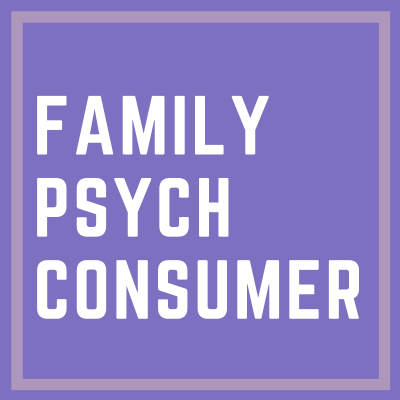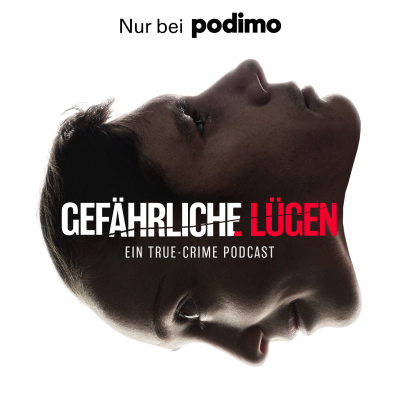
Family Psych Consumer
Englisch
Kostenlos bei Podimo
Kostenlos hören bei Podimo
Starte jetzt und verbinde dich mit deinen Lieblingspodcaster*innen
- Vertraut von über 1 Mio. deutschen Hörer*innen
- Über 1.000 lokale Podcasts und Shows – nur bei Podimo
- Keine Zahlung nötig
Mehr Family Psych Consumer
Family Psych Consumer provides a unique resource for families dealing with mental illness. Each week join Tom O’Connor, a national expert in mental health recovery, for a candid and inspired navigation of America’s mental health system. Whether you're a parent or a family caregiver, Tom will deliver to you the best critical thinking, training, and support to de-mystify the world of therapy, rehab, and psychiatric care for your loved ones – and recover your own wellness along the way.
Alle Folgen
9 FolgenCracking the Code on Borderline Personality – How Dialectical Behavior Therapy Brings Change and Dignity to Your Loved One Living in Chaos [Episode 8]
Borderline personality disorder is one of the most stigmatizing and sensational (pejoratively speaking) conditions that the mental healthcare world tries to understand and “treat”. So needless to say, if the experts are always struggling to figure out (and agree about!) its traits and disabilities, parents and families are suffering beyond belief each day caring for a loved one living with it. In another of his Shrink Rap talks with national experts, Tom introduces his listeners to Dr Anne Wake, a national expert on dialectical behavior therapy (DBT) and herself a longtime colleague and collaborator with DBT’s originator Dr Marsha Linehan. Like all Tom’s picks, Anne is a soothing but exacting reporter on how to understand the person suffering in their chaotic world AND this uniquely functional and successful behavior therapy. And how families can count on it for real change.
Your Reluctant Sidekick in Recovery – The Health Insurance Company [Episode 7]
OK, from birth, we are all potty trained, learn to eat, then distrust everyone over 30, and finally, hate insurance companies. But when we are expected them to pay our healthcare bills, we need to understand how they want to control the quality of care that hospitals, doctors, and therapists deliver. Now we know they have a rich reputation of denying care, especially when we feel our loved one needs it most. But why do they do it? This is Tom’s talk on understanding that why, so every parent or caregiver can be armed with that information to either advocate effectively to the treatment providers, or advocate to the insurance company to pay for necessary care. In this episode, Tom takes a balanced look at the good, and not-so-good, and infuriating about how insurance companies do their job. But here’s the thing - Tom is coaching you to get out of the emotional and into the (mild) weeds of thinking like them, and staying ahead of their decision-making. Then, you can truly use them as an effective partner in getting. . .and keeping . . . someone well.
Visiting a Psychiatric Hospital – Primer for First Timers, and How to Handle Yourself AND Help the Patient When You Are There [Episode 6]
One of the most mystical but misunderstood places in the medical world is the psychiatric hospital; this place has been dehumanized in our modern culture, and has a plethora of characters..the “looney bin, padded rooms, “crazytown”, all making it seem like some scary, even fascinating place. If it were a reality show , most viewers would expect the voyeur rush of watching an addict freaking out and destroying their room. But in real life, the “psych unit” is a really pretty boring place. And It IS a place where everything that matters happens quietly and unspoken – a place full of people who are quietly in distress, some really suffering, but all experiencing a brain injury that needs healing. But for families who have never been, there is are basic rules ways to behave to meaningfully participate in the recovery process. Tom take his listeners on a visit and explains the ways to get the most out of your visits to your loved one who is there. This episode walks you through a how-to plan for this most intimate and consequential of hospital stays for you and your loved one.
A Trauma Treatment Primer for Parents and Families [Episode 5]
Trauma - What does it look like? …Someone I love is suffering and it’s tearing me apart . . . How do I help? In todays’s episode Tom dives into trauma, treatment, and recovery…what it is, how it happens, and how you, the parent or family, can do everything in your power to understand it . . . and help someone recover from it. Tom introduces his listeners to Family Psych Consumer’s resident trauma expert, Dr Debbie Orr, and taps into her 30+year history as a trauma treatment expert to explain how trauma changes the person and the brain. With her quiet, deliberate manner, Debbie walks you through what to look for - and how to cope - when a loved one’s traumatic event completely overwhelms their life. Dr Debbie describes in detail how a singular or series of traumatic events slowly change the psychological, emotional, and physical health of a loved one. Tom and Debbie delve into how trauma experts approach and treat trauma, and the characteristics of quality care in this most intimate and complex area. Most importantly to his listeners, Tom discusses how family recovery can happen as part of the treatment for the traumatized person.
Doing the Impossible - Hospitalizing Someone You Love Against Their Will[Episode 4]
Due to popular demand, Tom jumped into one of the hottest (translation: painful and confusing) topics for parent and family caregivers: having to use a mobile crisis team to get a loved one into the hospital against their will - all in the interest of keeping them safe. While this topic requires A LOT of coverage, Tom gives his listeners a primer on the things that really matter: first, who are the players, what are their roles, and what are the rules of engagement. Secondly, what does the parent or family caregiver need to know, plan for, and expect in this otherwise highly chaotic, overwhelming event (that usually concludes with helping the cops handcuff some you love and take them to the hospital). And why is this necessary? Because the family or mental health providers have concluded that their psychotic thinking or despair makes them a certain risk to kill themselves or endanger the community. Tom wants this episode and its content to be a digestible “how to” about dealing with this most dreaded of all interventions for families dealing with a mental illness. He reviews his crisis care checklist and rules of engagement so the event can be as tolerable and as successful as possible. From knowing the law, to dealing with the police, and managing their thinking and stress, Tom walks his listeners through this most painful and courageous act of love.















































